Twin souls
I decided a few days ago that this would be the year in which I would finally get all the way through Philip Pullman's His dark materials trilogy. Previously I've never got beyond volume one Northern Lights (for Bookhound's American readers The golden compass, which I think is a better title). The reason I've never previously got any further is that I have a real problem with Northern Lights. There are three books that I have always struggled with: I've never got beyond the rats in 1984, it was a long time before I made it past the rape scene in The kite-runner, and with His dark materials I find the splitting of the children from their daemons almost physically distressing.
To backtrack a little - what am I talking about here? Northern Lights is set in Oxford, but an Oxford in a parallel universe, so there are many similarities with the world we know, but also many differences : some animals can talk and most importantly every human has their own daemon. A daemon is an extension of the person's soul, which usually (but not always) presents in animal form. It's a sort of divergent version of Plato's twin-souls' theory, although in the daemon's case it is joined to its other half from birth. Unlike Plato though, who believed that you could survive without your soulmate (although it would be rather better and happier for all concerned if you just happened to bump into each other), a human cannot survive without their daemon, or vice-versa. Children's daemons are able to change shape, but puberty means that the daemon moves to a fixed form which reflects their shared soul.
The world of Lyra (the heroine of the trilogy) is controlled by the Magisterium, a dour, Calvinistic organization, which seems to be both interested and terrified by science. Various scientists have suggested that there may be parallel universes, which are the same but different. One arm of the church is involved in shady experiments including the severing of abducted children from their daemons - it is not entirely clear why they want to do this, although there is a suggestion towards the end of the novel that it is related to a Manhattan-type project. I found this section very hard to read - it was horribly reminiscent (indeed I think this is what Pullman intended) of the experimentation that had taken place in Nazi death camps. Much of the book is about prejudice, and the inhumanity that can arise when sections of society are presented as "other".
For all that it's a children's novel, it is a very serious work, dealing with deep and important themes. It draws on modern science and history, and also literature - Lord Asriel - Lyra's father - reminded me, at least in this first volume he may appear differently in later ones, of Milton's presentation of Satan in Paradise Lost, charming, attractive, clever, and deeply flawed.
It's a great read for an intelligent child with an original storyline which moves along at a decent pace. It can be read fairly superficially but has plenty of meat to make you think too, it just depends on how deep you want to go. I just hope it doesn't become required schoolroom reading - the kiss of death to many a great book. An adult will pick up strands in the novel that will have passed over many a child's head, but that's good too. It's the kind of book that you can come back to and get something different from every time.
Problems? It can sometimes be a bit of a heavy read, almost unbearably sad, and there's no real counterweight of lightness or humour. But the greatest weakness I found was the voice of Lyra, it's a slightly odd pseudo-cockneyish voice with lots of "My dear" and "My love", I found this pretty irritating especially in her conversations with the armoured bear Iorek Byrnison. However these are really fairly minor defects. One of the best children's novels of recent years it's well worth a read, even if childhood is long behind you. Don't be put off as an adult from plunging into a kids' book, well-written, they are every bit as rewarding as any adult read.
To backtrack a little - what am I talking about here? Northern Lights is set in Oxford, but an Oxford in a parallel universe, so there are many similarities with the world we know, but also many differences : some animals can talk and most importantly every human has their own daemon. A daemon is an extension of the person's soul, which usually (but not always) presents in animal form. It's a sort of divergent version of Plato's twin-souls' theory, although in the daemon's case it is joined to its other half from birth. Unlike Plato though, who believed that you could survive without your soulmate (although it would be rather better and happier for all concerned if you just happened to bump into each other), a human cannot survive without their daemon, or vice-versa. Children's daemons are able to change shape, but puberty means that the daemon moves to a fixed form which reflects their shared soul.
The world of Lyra (the heroine of the trilogy) is controlled by the Magisterium, a dour, Calvinistic organization, which seems to be both interested and terrified by science. Various scientists have suggested that there may be parallel universes, which are the same but different. One arm of the church is involved in shady experiments including the severing of abducted children from their daemons - it is not entirely clear why they want to do this, although there is a suggestion towards the end of the novel that it is related to a Manhattan-type project. I found this section very hard to read - it was horribly reminiscent (indeed I think this is what Pullman intended) of the experimentation that had taken place in Nazi death camps. Much of the book is about prejudice, and the inhumanity that can arise when sections of society are presented as "other".
For all that it's a children's novel, it is a very serious work, dealing with deep and important themes. It draws on modern science and history, and also literature - Lord Asriel - Lyra's father - reminded me, at least in this first volume he may appear differently in later ones, of Milton's presentation of Satan in Paradise Lost, charming, attractive, clever, and deeply flawed.
It's a great read for an intelligent child with an original storyline which moves along at a decent pace. It can be read fairly superficially but has plenty of meat to make you think too, it just depends on how deep you want to go. I just hope it doesn't become required schoolroom reading - the kiss of death to many a great book. An adult will pick up strands in the novel that will have passed over many a child's head, but that's good too. It's the kind of book that you can come back to and get something different from every time.
Problems? It can sometimes be a bit of a heavy read, almost unbearably sad, and there's no real counterweight of lightness or humour. But the greatest weakness I found was the voice of Lyra, it's a slightly odd pseudo-cockneyish voice with lots of "My dear" and "My love", I found this pretty irritating especially in her conversations with the armoured bear Iorek Byrnison. However these are really fairly minor defects. One of the best children's novels of recent years it's well worth a read, even if childhood is long behind you. Don't be put off as an adult from plunging into a kids' book, well-written, they are every bit as rewarding as any adult read.


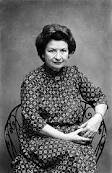

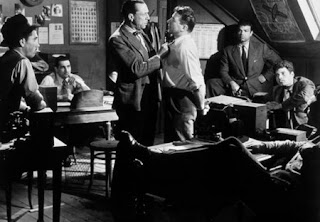
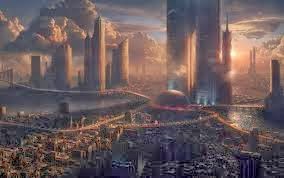
.jpeg)
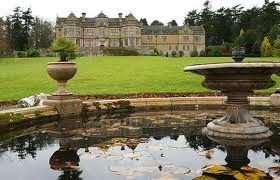

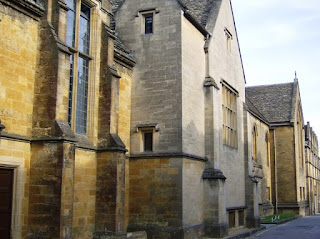
Comments